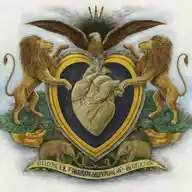
History Of Zimbabwe Myths & Truths Villaedge
February 8, 2025 at 10:04 AM
🇿🇼 *"Who Was James Chikerema?: The Enigmatic Nationalist and Zimbabwe's Forgotten Firebrand"* 🇿🇼
🇿🇼🇿🇼🇿🇼🇿🇼🇿🇼🇿🇼🇿🇼🇿🇼🇿🇼🇿🇼🇿🇼🇿🇼🇿🇼🇿🇼🇿🇼
🇿🇼 *History of Zimbabwe Myths and Truths Villaedge* 🇿🇼
https://chat.whatsapp.com/Hb01mf4Q7O5JaeeWmdiD6b
*Introduction*
In the annals of Zimbabwe’s liberation struggle, names like Joshua Nkomo, Robert Mugabe, and Ndabaningi Sithole dominate the narrative. Yet, lurking in the shadows of history is James Chikerema—a fiery nationalist whose radicalism, ideological clashes, and eventual marginalization reveal the turbulent undercurrents of Zimbabwe’s fight for independence. This post unravels the life, legacy, and lingering myths surrounding one of Zimbabwe’s most complex figures.
*Early Life: From Gutu to Radicalization*
James Robert Dambaza Chikerema was born in 1925 in Gutu, Southern Rhodesia (modern-day Zimbabwe). Educated at St. Augustine’s Mission in Penhalonga and later at Adams College in Natal, South Africa, he was steeped in the Pan-Africanist ideologies brewing across the continent in the 1940s. His time in South Africa exposed him to the anti-apartheid movement, shaping his belief in *armed resistance* as the only path to liberation-a stance that would later alienate him from moderate peers.
*Political Career: The Militant Maverick*
Chikerema emerged as a key figure in the *Southern Rhodesia African National Congress (SRANC)* in the 1950s, advocating for land redistribution and majority rule. By 1961, he co-founded the *National Democratic Party (NDP)* alongside Joshua Nkomo, but his uncompromising demand for immediate armed struggle clashed with Nkomo’s cautious diplomacy.
In 1962, Chikerema became a founding member of the *Zimbabwe African People’s Union (ZAPU)*, but tensions persisted. He famously derided Nkomo’s leadership as "too slow," leading to his expulsion in 1963. Undeterred, he formed the *Front for the Liberation of Zimbabwe (FROLIZI)*—a short-lived coalition seeking to unify ZAPU and ZANU factions.
*The Armed Struggle: A Controversial Visionary*
Chikerema’s advocacy for guerrilla warfare predated mainstream acceptance. While Mugabe and Nkomo initially pursued diplomatic channels, Chikerema insisted that *"freedom is won through the barrel of a gun"*; a mantra later adopted (and credited) by others. He allegedly collaborated with early insurgent groups, though his influence waned as ZANU and ZAPU consolidated power.
Critics labeled him a *"radical destabilizer,"* accusing him of factionalism. Supporters, however, hailed him as a visionary sidelined for challenging the status quo.
*Post-Independence: From Revolutionary to Businessman*
After Zimbabwe’s independence in 1980, Chikerema’s political star faded. Unlike his peers, he never secured a ministerial role. Some speculate that his earlier critiques of Mugabe’s leadership and ties to ZAPU made him a persona non grata in the new ZANU-PF-dominated government.
Instead, he pivoted to business, amassing wealth through agriculture and transport ventures; a move that fueled myths of *"selling out"* the revolution. Yet, Chikerema defended his choices, stating: *"Liberation means economic freedom, not just a flag."*
*Myths vs. Truths: Unpacking Chikerema’s Legacy*
1. *Myth*: *Chikerema was a ZANU founder.*
*Truth*: He was a ZAPU stalwart who later criticized both ZANU and ZAPU for infighting.
2. *Myth*: *He abandoned the struggle for personal gain.*
*Truth*: His post-independence business ventures reflected his belief in economic empowerment as liberation’s next phase.
3. *Myth*: *His militant tactics delayed independence.*
*Truth*: Chikerema’s early calls for armed resistance laid groundwork for later successes, even if his methods were divisive.
*Death and Legacy: The Forgotten Firebrand*
Chikerema died in 1985 at 60, reportedly of natural causes. His death coincided with Zimbabwe’s descent into one-party rule, cementing his status as a *"ghost of the revolution."* Today, he is seldom memorialized in state-sanctioned histories, yet his ideological fervor and defiance resonate with critics of Zimbabwe’s post-colonial elite.
*Why Chikerema Matters Today*
Chikerema’s story exposes the *factionalism and ideological rifts* that shaped Zimbabwe’s liberation movement—and still haunt its politics. His life challenges us to ask:
- How do we remember those who dared to dissent?
- Can economic justice coexist with political freedom?
*Join the Discussion!*
- Was Chikerema a visionary or a disruptor?
- How should Zimbabwe reconcile its revolutionary past with its present?
Drop your thoughts below! 🔥 #zimhistory #forgottenheroes #decolonizethenarrative
🇿🇼🇿🇼🇿🇼🇿🇼🇿🇼🇿🇼🇿🇼🇿🇼🇿🇼🇿🇼🇿🇼🇿🇼🇿🇼🇿🇼🇿🇼🇿🇼